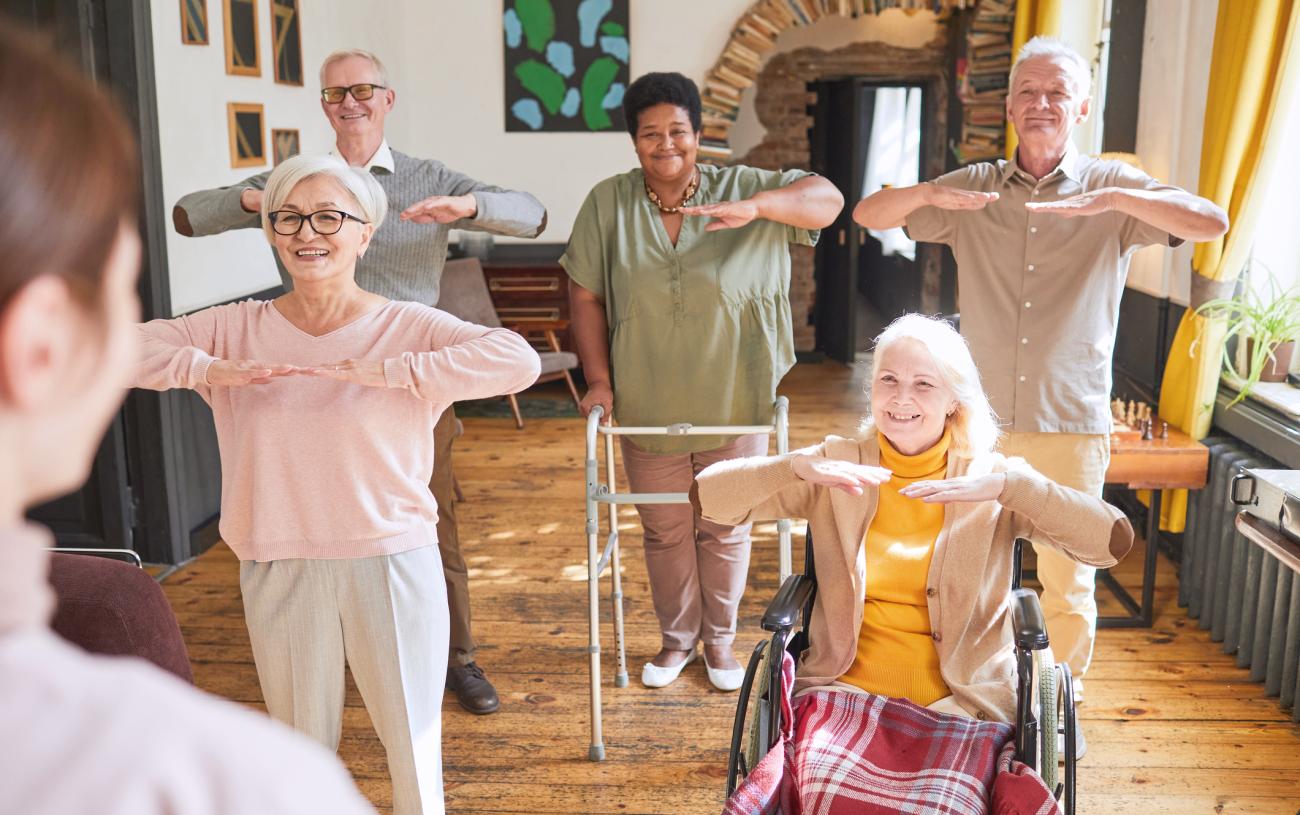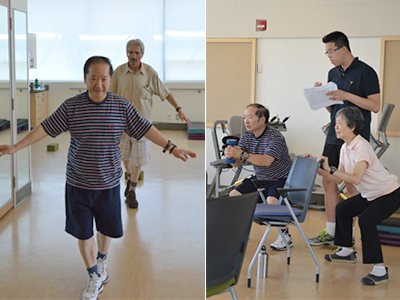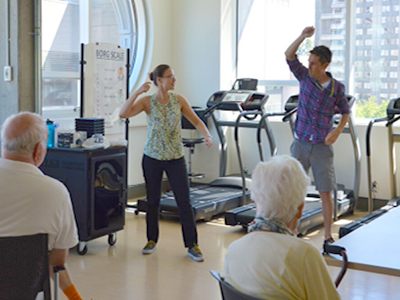
After experiencing one or more strokes, patients in a six-month exercise training study group experienced significant cognitive gains.
Stroke is the third leading cause of death in Canada, and its impact on the brain also doubles the risk of developing dementia. However, according to the findings of a study led by Vancouver Coastal Health Research Institute researcher Dr. Teresa Liu-Ambrose, exercise can induce clinically important improvements in cognitive function among older adults with chronic stroke.

Stroke occurs when blood flow to the brain is interrupted due to a blood clot or from conditions such as high blood pressure or head trauma. This blockage results in brain cell death, which can impact both cognitive function, such as memory, and motor function, such as drooping facial features or the loss of hand or arm strength and dexterity.
All of the above can reduce a person’s independence and quality of life.
“Stroke survivors need interventions to promote cognitive function and prevent dementia.”
Prior research has linked exercise with cognitive and brain improvements in older adults; however, there was inconclusive evidence regarding the impacts of exercise on cognitive function among people who have experienced stroke.
The benefits of exercise for people who have experienced a stroke
Liu-Ambrose’s randomized clinical trial, published in JAMA Network Open, involved 120 participants aged 55 years and older who had experienced one or more strokes.
Participants were randomly assigned to three different programs that involved twice-weekly, supervised, 60-minute classes over the course of six-months.

“This study is the first to specifically assess the effect of exercise on cognitive function among those with chronic stroke,” says Liu-Ambrose. “Our results show that exercise can significantly improve cognitive function after a stroke that is meaningful to the individual.”
“Based on our findings, moderate intensity exercises should be recommended to those with chronic stroke to promote brain health.”
The exercise training program involved progressive strength, aerobic, agility and balance training exercises.
For the cognitive and social enrichment program, participants engaged in computerized cognitive training and social and cognitive enrichment activities, sometimes using apps.
Participants in the stretching and toning program performed stretches; deep breathing and relaxation exercises; and received general posture education, grip strength and dexterity exercises, along with light isometric toning exercises and, once per month, an educational seminar instead of the usual program.

“The degree of improvement in cognitive function we observed can be deemed as clinically important, such that the improvement is meaningful to the individual living with chronic stroke,” explains Liu-Ambrose.
“Our results also demonstrate that cognitive function can still be improved in the chronic phase of stroke, meaning that it may never be too late to see improvements from exercise after a stroke.”
“Notably, the vast majority of our participants started the study with mild cognitive impairment,” adds Liu-Ambrose. “Our results showed that those in the exercise training group were less impaired reverted to more normal cognitive function at the end of the study.”
Conversely, the study team found no change in the cognitive function of the cognitive and social enrichment group and stretching and toning group at the end of the six-month program.
However, researchers found no significant difference in cognitive function scores between the three groups six months after the programs ended. “This is because participants in the exercise training program stopped doing the exercises,” Liu-Ambrose explains. “Participants no longer reaped the benefits of exercise after they stopped.”
“This finding highlights the need to incorporate lifelong healthy behaviour change strategies with structured exercise interventions to substantially impact long-term health.”


